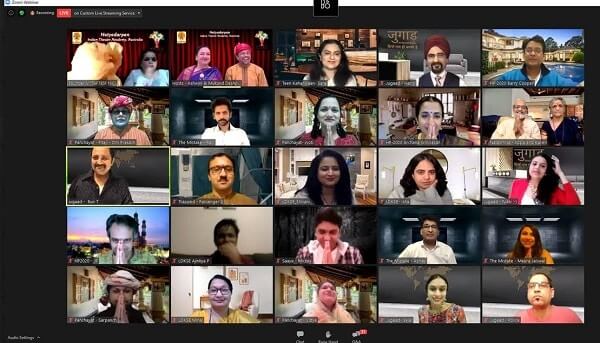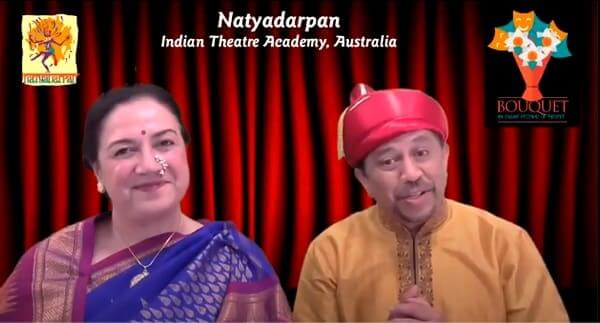Recently, Forty-five amateur artists pulled off a theatrical coup of sorts with Bouquet, a 9-play act held virtually. Even as COVID-caused lockdown persisted, the Melbourne-based theatre academy Natyadarpan embraced the online medium to ensure their plays continued to reach audiences, albeit on a screen of their choice.
With over two months of regular engagement, those involved were incredibly busy despite the lockdowns, keeping themselves occupied in pursuit of their creativity and passion.
They performed live from 33 homes to an audience situated across 14 time zones in ten countries, including Australia, New Zealand, Vietnam, Singapore, India, Pakistan, UAE, UK, USA and Zambia.
Nearly 700 tickets, sold at $5 per head, helped raise funds for the Friends of the Children Foundation for their ongoing community-building projects.
True to its name, Bouquet offered a diversity of flavours and genres with nine short plays, their themes ranging from comedy, crime, thriller, social to dark, most of them original and experimental.
READ ALSO: A review of Arjun Raina’s Straight From the Horse’s Heart

Seven of these productions were based on scripts written in house. Visual backdrops, painstakingly created, were successfully able to transport audiences inside a train compartment, a courtroom, a jungle, even a motor car in drive.
Two plays were creative adaptations of cult-making productions like Natsamrat, based on the original play by V.V Shirwadkar, and Trapped written by Yogesh Soman.
Prior to each act Mukund and Ashwini Deshpande as the MCs explained the context of the play and introduced the artists.
Dressed in traditional Maharashtrian outfits they dedicated the event to the 140th anniversary of India’s first musical play Sangeet Shakuntal. The first show of this iconic play was held in Pune on 31 October 1880.
An invocation song dedicated to Lord Natraj, the God of Performing Arts, was also recreated by Dr Subhash Sharma and sung by Prachi Gaindhar and Saurabh Mishra. The song was a unique collaboration with music provided by India on musical equipment used in the original play in the 1880s.
Creating the circumstances behind the plays were interesting digital backdrops and theme-relevant background music. Despite varied skills, the collaborative spirit of the play elevated its delivery.
The emotional impact was equally heightened as it would have been during a live performance, as the actors nailed their dialogues with varying degrees of competence
“Being a part of this unique event was extremely satisfying,” said Mandar Vaidya, the founder of Melbourne’s Natyadarpan. “We had something to be proud of at several levels. This was among the first nine-act plays to be held online, reaching nearly 2000 people around the world and dedicated to a good cause. It was worth every minute of the gruelling hours that we put in as community group,” he said.
READ ALSO: Natyadarpan’s Prism festival of monologues: The show must go on(line)!





